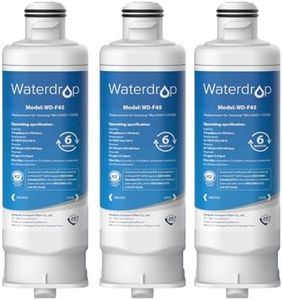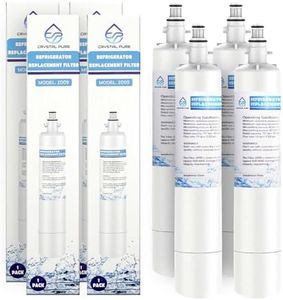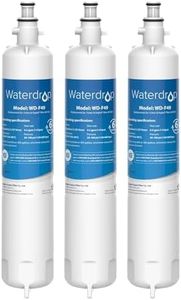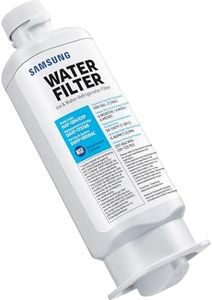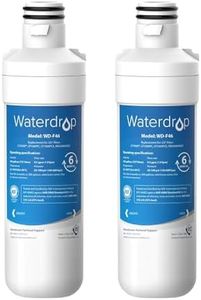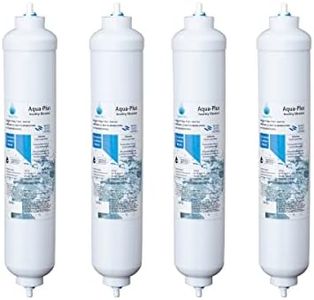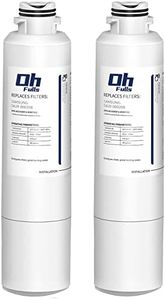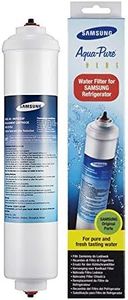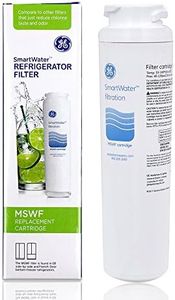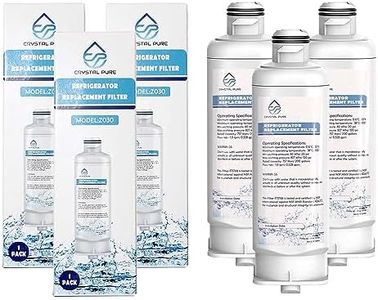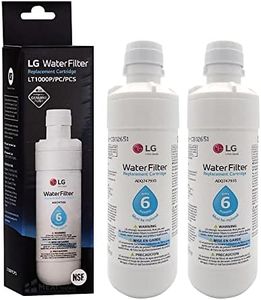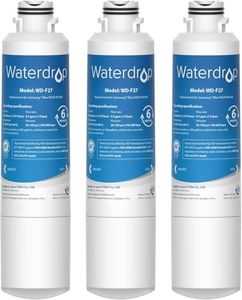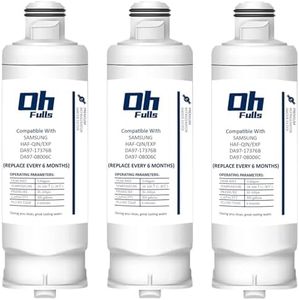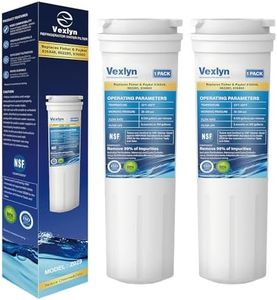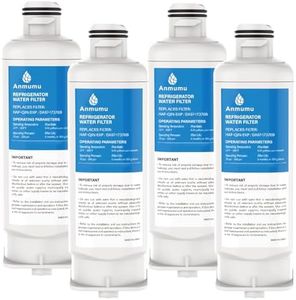We Use CookiesWe use cookies to enhance the security, performance,
functionality and for analytical and promotional activities. By continuing to browse this site you
are agreeing to our privacy policy
10 Best Refrigerator Water Filters
From leading brands and best sellers available on the web.By clicking on a link to a third party's website, log data is shared with that third party.
Buying Guide for the Best Refrigerator Water Filters
Choosing the right refrigerator water filter is essential for ensuring that the water and ice from your fridge are clean, taste good, and are free from unwanted substances. It's not just about getting the filter to fit your fridge; it's also about matching the filter's capabilities to your household needs. To make a good choice, it's important to understand what each filter does, how often you'll need to replace it, and if it improves water quality in the ways that matter to you. Always double-check your refrigerator's model to find compatible filters and consider your family's water consumption and preferences.Filter CompatibilityFilter compatibility simply means whether a particular water filter will fit and work with your refrigerator. This is crucial because not all filters fit all refrigerators—their shapes, locking mechanisms, and water flow designs differ. To figure this out, start by checking your fridge’s brand and model number, usually found inside the fridge door or on the user manual. Manufacturers often list which filters match specific models. Picking a compatible filter ensures safe installation and effective filtering, so always confirm the match before buying.
Certification StandardsCertification standards refer to whether the filter has been independently tested and certified for removing specific contaminants according to standards like NSF/ANSI. This is important because certifications show the filter has passed objective safety and efficiency tests. Look for logos or marks such as NSF 42 (for chlorine taste and odor), NSF 53 (for lead and other contaminants), or NSF 401 (for pharmaceuticals). If you mostly care about better-tasting water, NSF 42 may be enough. If you're worried about heavy metals or other specific hazards, aim for filters with higher certifications.
Contaminant RemovalContaminant removal describes what unwanted substances the filter can actually remove from your water—such as chlorine, lead, pesticides, or microbial cysts. This matters because different filters are good at targeting different issues, and your home water source might have unique concerns. Review what you want to avoid in your water—maybe it's mainly taste and odor, or maybe you need protection from more serious pollutants. Choose a filter that specifically lists removing those contaminants; this information is usually found in the product description or on the packaging.
Filtration CapacityFiltration capacity tells you how much water a filter can clean before it needs to be replaced, usually measured in gallons or liters. This is important because it helps you plan how often you'll need a new filter—filters with low capacity need more frequent changes, which could be disruptive for larger households. If you have a big family or use lots of ice and water from your fridge, look for filters with a higher capacity. For single-person homes or light use, smaller capacities might be just fine and ensure fresher filtering.
Replacement FrequencyReplacement frequency recommends how often you should change your filter, based on average usage and filtration capacity—often every 6 months. This matters because expired filters can stop working well, letting impurities through or even harboring bacteria. If your household uses a lot of filtered water, you may reach the limit faster. Look for filters that fit your lifestyle: If you don’t want to think about frequent replacements, opt for longer-lasting models. Always pay attention to water taste or flow changes, as these signal it’s time for a new filter.
Installation and MaintenanceInstallation and maintenance refer to how easily you can put in and take out the filter, and whether the process is tool-free or requires extra effort. This is important for user convenience and ensuring a good seal to avoid leaks. Some filters are twist-in, while others push in and click. If you prefer quick, no-fuss changes, look for filters designed for easy installation. Always follow manufacturer instructions to keep your fridge running smoothly and your water safe.
